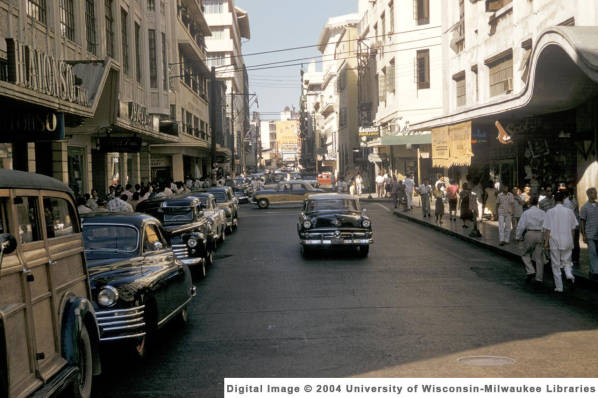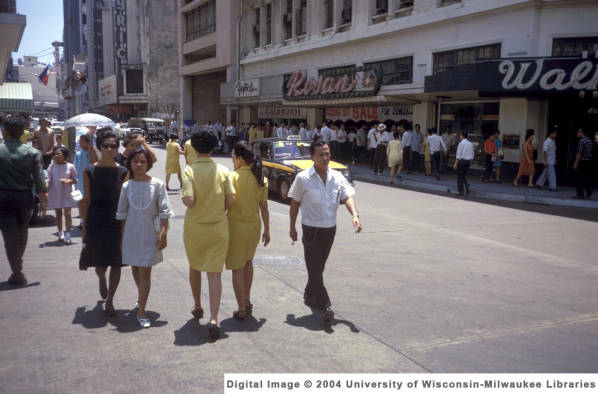Hello there my friends. It's been a while. I've been trying to write stories during these last few days, unsuccessfully, because I am currently immersed in movies on DVDs. I have not watched movies for the longest time and, since I have gotten more and more free time, I lay down and watch movie after movie every day. There was a time I watched three movies in a row where the male protagonist/hero/lover dies. Cold Mountain and... now I can't even remember the other two. I thought three deaths of lovers in a row suggested that my own love (or whatever I imagine my own love was) was also dying or dead. So I looked around me and said to myself, "Darn, isn't life so miserable when you think your love is dead and you don't even have love in the first place?" It's like divorcing someone you have not married yet. Let me tell you something: when you reach my age, beauty is no longer an asset. Beauty in spirit, beauty in knowledge, beauty in culture, yeah sure, I got them all. But beauty that makes heads turn? When I was in my twenties, people turned their heads and stared at me extra long when I entered a bar. In my thirties, at least, maybe twenty percent of the people in a bar still looked at me extra long. In my forties, people stare at me probably asking, "My God, why is he here?" or "Goodness gracious, I don't want to be like that when I get old." Of course I am exaggerating here but you are probably getting my drift. I am not one of those who ever considered 'my beauty' an asset. In a hypothetical beauty pageant, my gay friends hand me neither the Title nor Miss Photogenic nor Miss Congeniality awards. For them, I'd always be Miss Labor. Or Miss Carriage. Or Missed Beauty.
And it amuses me now, looking back at those days when I relied heavily on my physical attributes to attract friends and lovers. I was never a 'stunner' or a 'looker' without trying to sound self deprecating. But I was very fulfilled. In my twenties, I'd often find sex if I wanted to. I'd find someone who'd take me home if I focused on finding that someone. True, I may not have had the money that would have taken me to the more upscale hang-outs, but between Luneta, Lawton, Avenida, Recto, Taft, Quiapo, Cubao and Paseo de Roxas, I had more than enough of my share, and those who grew up gay with me in the eighties would know exactly what I am talking about. And in the US, oh, man, one thing I like about this country is - you can dip your hand into any nationality, race, culture you want. Size varies. Of course you can also catch a lot of diseases. I am so glad I came to the US when I was about to taper off in my wildness. Nowadays, I just admire what comes along. I have quit on tasting because I believe I've tasted every food I wanted to taste already. Sex to me nowadays is becoming more and more of a joke. I am scared of turning fifty and needing a blue pill to make it work out. Really, people who claim to be wild and sexually active everyday at fifty or up are simply lying bitches!
And though people in the US mistook me for other nationalities when I was younger, nowadays, majority always say I am Filipino. As I get older I am beginning to look more and more a native of my town Lubao. I start to look like my maternal uncles in their older years. Brown, wrinkled, drooping lips, poor eyesight and even hard of hearing. This is the time I envy my father, bless his soul - my father kept himself so well groomed even in his latter years, before strokes took over his life. My father looked mestizo though I never took after him. I resemble my mother, bless her soul also, now that I look at her younger portraits. I look more like the Zita side of the family, not the Zuniga or Cordova. My mother was the one who never paid attention to her looks as she got older. She was more concerned about work, how to make business and how to keep the family running. On the other hand, my father stayed put in his teaching job, placing more value to 'the image' of the family than its survival. My parents did a job well done. We not only survived, we thrived during and long after they were gone.
When I look at the mirror now, I remember my father. There was a time he would castigate me on how I looked - he would inspect my nails, my haircut, the types of clothes I wear, the manner I talk and eat. When I was younger, I attributed his strict code of manners and appearances to his teacher's profession. He wanted his children to look decent, even when there was no more food on the table. But now that I work with many Hispanics and Latinos, and most of my co-workers are fathers themselves, I see my father in them. The Chileans and Argentineans and Colombians are more like my father. Reserved, quiet or whispering, and rarely given to excitable state. (Though my father could be loud especially when drunk). Sometimes, Victor, my Chilean friend, would remind me about me needing a hair-cut or sometimes, he'd say, "Your socks don't match." We never pay much attention to our work clothes but when we gather in seminars or parties, the differences in our looks are magnified. I'd never see my Hispanic friends caught wearing my choices of clothes in parties. I'd never see them talk as loud as I can be at times. Sometimes I can get so overly excited especially when I joke around and Victor would hush me, and I remember my father in him when he does that. Of course I listen to him. He had saved me from a lot of troubles in my work place before.
There are slivers of the past that reminds me of my father when I look at certain photographs of the old Philippines. I remember the days when we put value on how we looked. Especially in going to Manila for provincial boys like me- it was a must to be properly dressed, it was like an unwritten code, that to go to Manila we must have the best clothes and shoes to wear. Sometimes the way we dressed could be an overkill, a source of eternal amusement to Manila native dwellers. Before poverty took over our lives, I remember the manner by which we FIlipinos were told to be dress-appropriate wherever we went. I don't know the beginning of the decline and how we ended up being ok with watever we wear wherever we went but I remember my parents being strict with dress codes. We wore new clothes on special days, we wore the best clothes on Sunday worships. Shoes were always a must. True we could be shirtless and allowed slippers in our neighborhoods but going to the urban areas, we had to show our best.
This is one of the sources of my sadness when I come home to Manila: anybody seems to be wearing anything in the city. I guess I don't visit the more stylish corners and hang-outs of the city but when I go to places like bus stations, malls, movie theaters, parks and cafes, I see emaciated people wearing clothes covered with dust, and shoes sometimes were absent. Is it too much to ask for Filipinos to start showing dignity in themselves by wearing appropriate clothes in appropriate places? I can understand how poverty took away our sense of style and that Spanish influence of 'keeping up appearances' during the 'depression' but if we truly believe our country is improving and more people are earning during this twenty-first century, is it too much to ask the people to at least rekindle the old tradition which my father and his generation strictly adhered to?
The reason I am writing this is because for many years, since poverty took over our family life, I thought my father was the only 'image-conscious' Spanish-influenced father in our entire country. I hated the fact that despite our poverty, he'd insist we wear appropriate clothes in appropriate places. He was like a voice in the desert as I responded to him with my cheap shirts and oversized pants from Divisoria, worn every day in a week. I thought I was in defiance because I wanted to empathize with the plight of my impoverished country. My country, I countered, is poor, therefore I need to wear rags. I resented the fact that he had to shower everyday, put pomade, powder his face, wear the neatly pressed polo shirt and pants on top of shoes shiny and bright. Until I recently saw a picture of Escolta street taken sometime in the late sixties and early seventies.
I thought the picture was not Manila at all! Women wore their hair prim and proper, their clothes were neatly pressed and their shoes were bright and shiny. There was not a single man nor woman nor child walking on that street without shoes. Now I understand my father and his generation better. (to continue...)


Return to Home